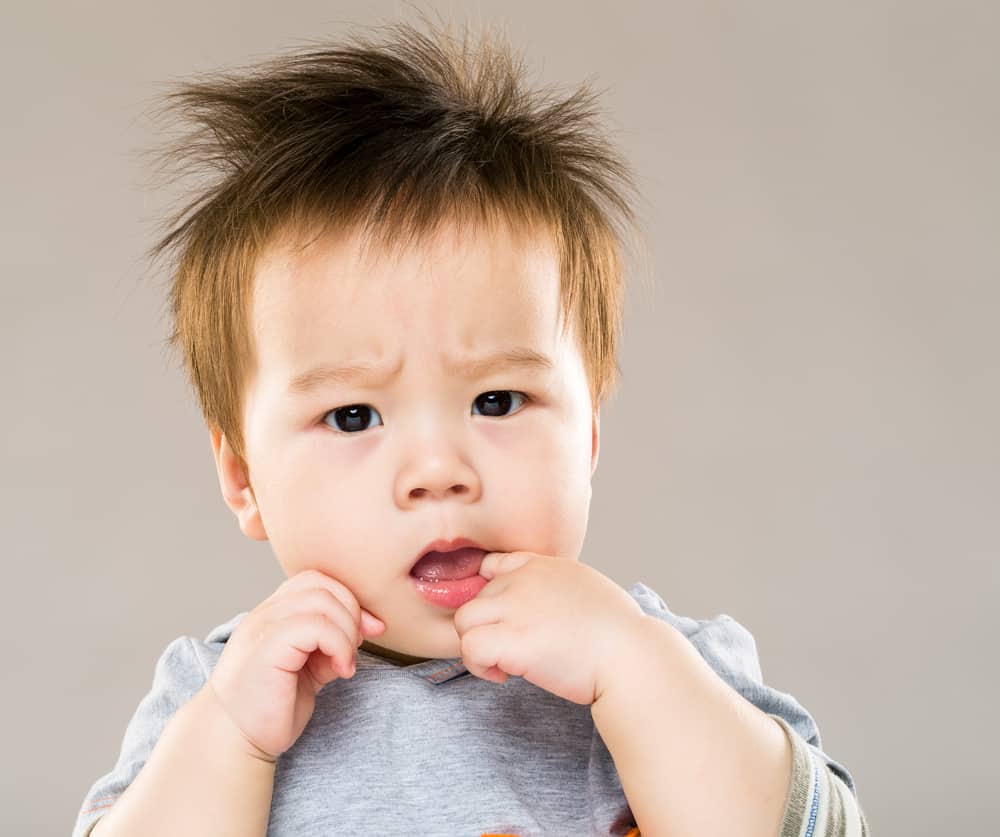When do babies get teeth?

There’s no set timeframe for when babies get teeth. For some bubs, their teeth emerge at three months old, while others still won’t have any teeth by their first birthday. Although there’s a lot of variability on a case by case basis, we can give you an average.
Most people will see the first tooth pushing through their baby’s gum line between four and seven months old. Teething usually begins around the six month milestone, and what an adventure that can be!
Although teething is necessary for the development of your child, it’s something that many parents come to dread because of the associated discomfort and irritability.
How can I tell when my baby is teething?
You can tell when your baby is teething by looking out for the following symptoms:
- Tender gums
- Swollen gums
- Irritability and fussiness
- Crying a lot
- Temperature is slightly elevated (but still less than 38 celsius)
- Excess drooling
- Facial rash
- Coughing
- Chewing or gnawing on fingers or hard items such as toys
- Sleep routine is disrupted
- Changes in eating habits
It’s important to note that every baby experiences teething differently, and some lucky bubs don’t show any signs at all. Teething pain normally lasts for one week, but may last for a few months.
How can I soothe my baby’s teething pain?
You can soothe your baby’s teething pain by trying these simple tips:
- Softly rub your baby’s gums with a wet gauze or clean finger. The gentle pressure helps to alleviate some of the tenderness.
- Give your baby a frozen wet cloth to chew on to reduce inflammation (just make sure the cloth was clean before you put it in the freezer).
- If your baby is eating solid foods, they might get some relief from chewing on cold foods such as yogurt or frozen fruit.
- Teething rings and specialised teething toys are good to chew on, especially those that have been refrigerated.
- Deal with excessive drooling by using a clean cloth to gently dry bub’s chin and cheeks as often as needed. This helps to alleviate teething rashes. You can also apply a water-based moisturiser to prevent the skin from drying out and becoming more irritated.
- Over-the-counter pain medication such as Tylenol or Nurofen can help to reduce teething pain. Check with your doctor or ask the pharmacist if the medication is suitable for your baby, depending on their age. It’s best to avoid pain medications with the ingredient benzocaine, as this is associated with a rare condition that impacts blood oxygenation.
When should I be concerned about my baby not having teeth?
Don’t’ be alarmed if your baby doesn’t have any teeth by the time they’re 18 months old, but we suggest you take your child to a paediatric dentist to determine what’s causing the delay. Some babies don’t begin teething until after the 12 month mark, and this could be for any number of reasons. Sometimes there’s no underlying cause for delayed tooth eruption, but it’s best to seek the advice of your dentist.
At any rate, it’s a good idea to take bub for their first dental visit when they’re around 12 months old (regardless of whether or not their teeth have emerged).
Our friendly team is based in Wahroonga, and we’re committed to providing the best dental care. Fill out this form or call us on (02) 9489 1107 to book an appointment.
